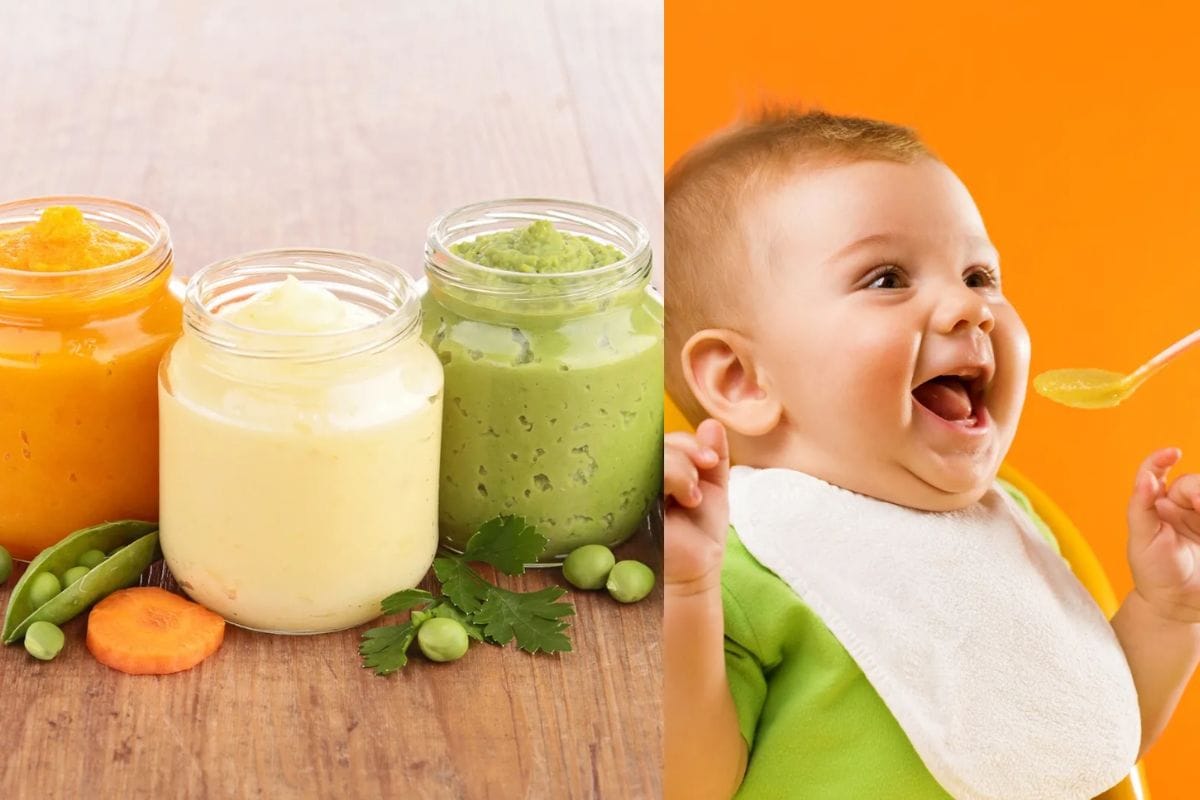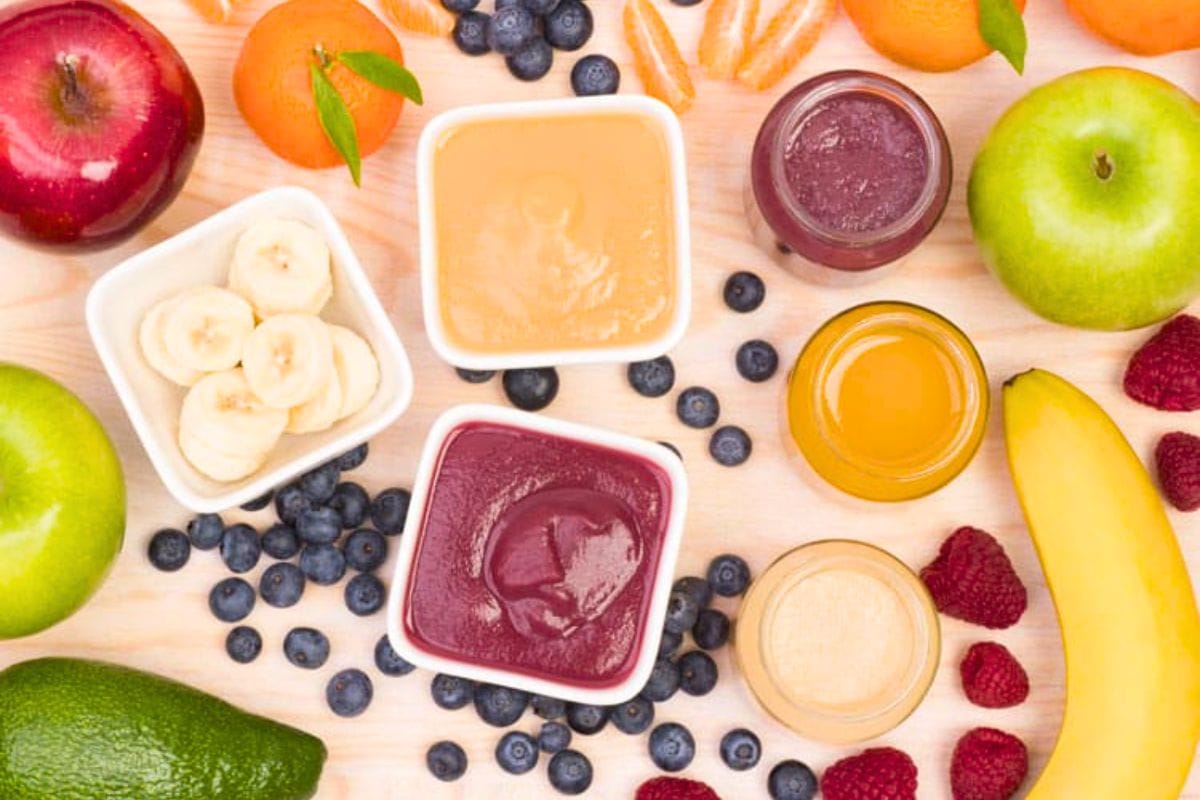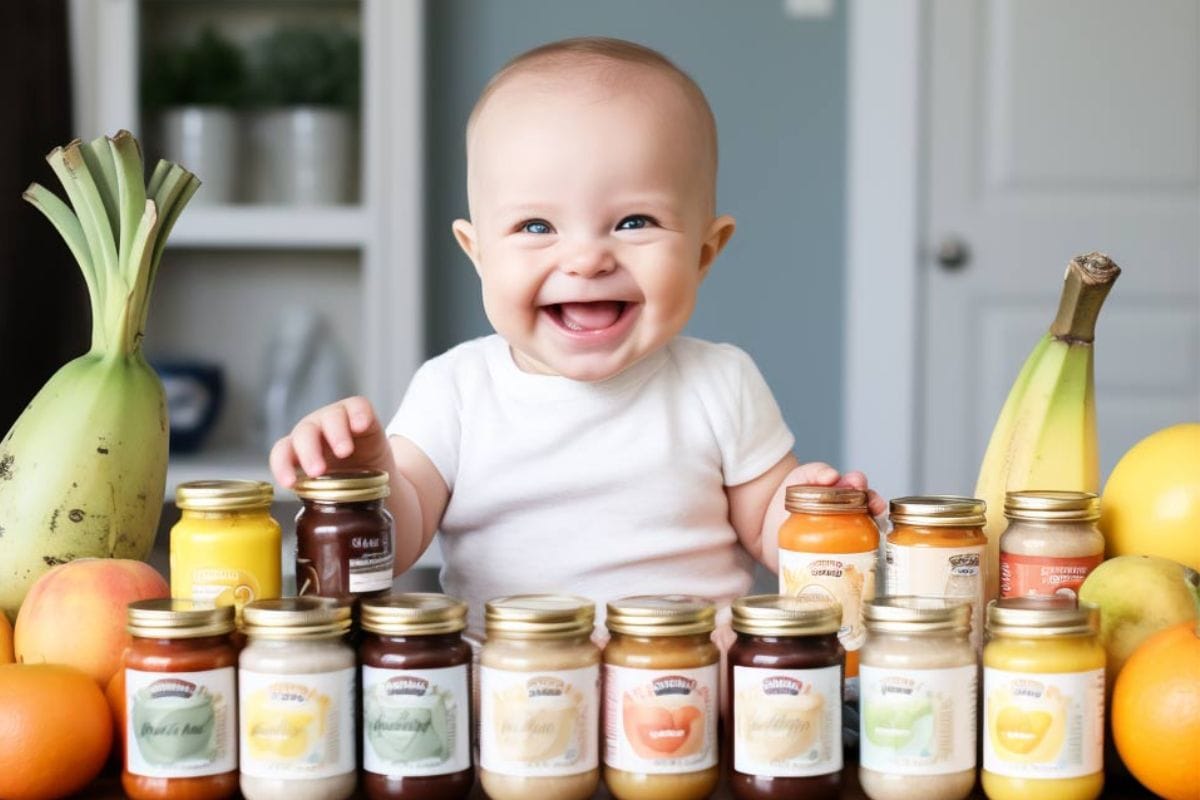The global organic market has experienced remarkable growth over the last two decades, expanding from €15 billion to an impressive €112 billion. This surge reflects a growing public awareness of environmental issues and a heightened demand for premium products. Parents, in particular, are becoming increasingly concerned about the safety and quality of the food they offer their children. As a result, organic baby food has gained significant traction as a preferred choice for many families.
Organic baby food goes beyond being a trend; it embodies a dedication to health and wellness for infants. With many parents prioritizing health and well-being, the demand for organic baby food reflects a commitment to ensuring that little ones receive the best possible start in life.
In this article, we will explore the rising popularity of organic baby food in Dubai, highlighting its benefits and the factors driving this essential shift in infant nutrition.
What Makes Baby Food Organic?

Organic baby food refers to food products specifically made for infants that meet strict organic standards set by regulatory bodies. In many countries, including the UAE, organic foods must be produced without the use of synthetic pesticides, fertilizers, genetically modified organisms (GMOs), and artificial preservatives. These standards ensure that the food is grown and processed in a way that emphasizes environmental sustainability and safety for consumers.
The production of organic baby food is governed by various regulations that dictate every aspect, from farming practices to processing and labeling. For instance, organic fruits and vegetables must be grown in nutrient-dense soil without chemical inputs. Dairy and poultry products must come from livestock that are fed organic feed and not treated with growth hormones or antibiotics. This commitment to organic practices reassures parents that the food they are providing is safe and free from harmful chemicals.
What Factors are Driving the Demand for Organic Baby Food?



- Health Consciousness
As awareness of food safety continues to grow, parents are increasingly concerned about the potential toxins and harmful chemicals present in conventional baby food. Many parents are now aware that conventional produce may contain pesticide residues, synthetic additives, and other harmful substances that could impact their baby's developing immune system. This heightened consciousness drives the demand for organic baby food, which is produced without these harmful chemicals, offering parents peace of mind about the safety of their children's meals.
- Nutrient-Rich Options
Organic baby food is often regarded as a more nutrient-dense option compared to conventional alternatives. Organic fruits and vegetables are typically grown in nutrient-rich soil without synthetic fertilizers, which can lead to higher levels of essential vitamins and minerals. Studies suggest that organic produce can contain more antioxidants and beneficial compounds, contributing to better overall nutrition for infants. As parents become more knowledgeable about the importance of nutrition in early childhood, the preference for organic options continues to rise.
- Taste and Variety
There is a common misconception that organic baby food lacks flavor compared to its conventional counterparts. However, many parents find that organic foods offer a more authentic and vibrant taste. By introducing a variety of organic fruits, vegetables, and grains, parents can expose their babies to a diverse range of flavors early on. This variety not only makes mealtime more enjoyable but also helps develop a well-rounded palate, encouraging healthier eating habits as children grow.
- Long-Term Health Benefits
The benefits of organic baby food extend beyond immediate nutrition; they also contribute to long-term health. Research indicates that children who consume organic foods may experience lower risks of obesity, allergies, and other health issues later in life. Organic foods are less likely to contain GMOs and artificial preservatives, which can disrupt hormonal balance and contribute to weight gain. By establishing healthy eating habits with organic options from an early age, parents can help set the foundation for their child's lifelong health and well-being.
The Organic Baby Food Market in Dubai

Market Growth and Trends
The organic baby food market in Dubai has witnessed significant growth in recent years, driven by a combination of health awareness and a desire for premium products. As parents become increasingly conscious of the ingredients in their children's food, the demand for organic options has surged. Several factors contribute to this trend:
- Increased Availability: With the rise of organic food retailers and dedicated sections in supermarkets, organic baby food is becoming more accessible to consumers. Stores are expanding their offerings, making it easier for parents to find high-quality organic products.
- Influence of Social Media: Platforms like Instagram and TikTok have played a crucial role in promoting organic baby food. Influencers and parenting bloggers frequently share their experiences with organic products, showcasing their benefits and encouraging others to make the switch.
- Health and Wellness Initiatives: Government campaigns promoting healthier eating habits also play a role in boosting the organic market. These initiatives educate parents about the benefits of organic food, emphasizing its positive impact on children's health.
- Sustainability Concerns: The growing awareness of environmental issues has led many parents to prefer organic products that are more sustainable. Organic farming practices often prioritize environmental health, appealing to eco-conscious consumers.
Consumer Preferences
When it comes to choosing organic baby food, parents in Dubai have specific preferences that reflect their values and concerns:
- Quality and Safety: Parents prioritize products that are certified organic and free from harmful chemicals. They often look for transparency in labeling, wanting to know exactly what goes into their baby's food.
- Variety of Flavors: Parents seek a diverse range of flavors and blends to introduce their babies to different tastes. Organic brands that offer unique combinations of fruits, vegetables, and grains tend to attract more attention.
- Nutritional Value: There's a strong emphasis on the nutritional benefits of organic baby food. Parents want products rich in vitamins and minerals, as well as options that support their baby's growth and development.
- Packaging and Convenience: Parents appreciate eco-friendly packaging and convenient options like pouches and jars that make feeding on-the-go easier. Products that are easy to store and serve often rank higher in consumer preference.
- Brand Reputation: Trust in brands is crucial. Parents are more likely to choose established organic brands with positive reviews and a reputation for quality. They often rely on recommendations from fellow parents and online communities.
Best Organic Food Choices for Babies

When it comes to feeding your baby, fresh fruits and vegetables are always a better choice than packaged foods, as they provide optimal nutrition and avoid additives.
Organic Fruits
When it comes to organic fruits, options like bananas, avocados, and berries stand out for their nutritional profiles.
- Bananas are an excellent source of potassium and vitamin B6, essential for brain development and muscle function. Their natural sweetness makes them a favorite among infants, and their soft texture is easy for babies to eat, especially when mashed or pureed.
- Avocados are a powerhouse of healthy fats, particularly monounsaturated fats, which are vital for brain development. They also provide fiber, potassium, and vitamins C, E, and K. The creamy texture of avocados makes them a great first food for babies, and they can easily be mashed or blended with other foods.
- Berries, such as blueberries, strawberries, and raspberries, are rich in antioxidants, vitamins C and K, and fiber. These nutrients support the immune system and promote healthy digestion. Berries can be pureed or served whole, depending on the baby’s age and chewing ability, making them versatile additions to an organic diet.
Organic Vegetables
Organic vegetables are crucial for providing essential vitamins and minerals. Some excellent choices include:
- Sweet Potatoes are packed with beta-carotene, which converts to vitamin A in the body, supporting vision and immune health. They are also high in fiber, which aids digestion. Sweet potatoes can be steamed, mashed, or pureed for a smooth texture that's easy for infants to consume.
- Carrots are another great option, rich in beta-carotene, fiber, and vitamins C and K. Cooking carrots until soft and pureeing them can create a nutritious and tasty baby food. The natural sweetness of carrots often appeals to babies, encouraging them to explore new flavors.
Organic Whole Grains
Introducing organic whole grains into a baby's diet is essential for providing energy and promoting healthy digestion.
- Muesli made from whole grains offers a mix of oats, nuts, and dried fruits, which can be beneficial for babies when prepared properly. Soaking muesli in milk or yogurt softens it, making it easier for infants to chew and digest. Whole oats are also a good source of fiber and B vitamins.
- Quinoa is a complete protein source, meaning it contains all nine essential amino acids, making it an excellent option for growing infants. It's also rich in iron, magnesium, and antioxidants. Quinoa can be cooked and pureed or served in small, soft pieces for older babies to explore.
Organic Lean Proteins and Dairy
Organic lean proteins and dairy products are critical for infants’ growth and development.
- Organic Chicken and Fish are excellent sources of protein, providing essential amino acids necessary for muscle development. Organic poultry is raised without antibiotics or hormones, ensuring a cleaner option. Fish like salmon, rich in omega-3 fatty acids, supports brain development. Both should be cooked thoroughly and can be shredded or pureed for easy consumption.
- Organic Dairy Products, such as yogurt and cheese, offer calcium and vitamin D, crucial for bone health. Organic yogurt, especially, contains beneficial probiotics that can aid in digestion. When introducing dairy, it’s important to choose plain varieties without added sugars or artificial flavors.
Debunking Myths and Finding Balance in Organic Baby Food
Misinformation surrounding organic baby food is prevalent and can lead to confusion among parents. Common myths, such as the belief that organic food is always more nutritious than conventional options or that organic foods are unnecessary for infants, can misguide purchasing decisions.
It’s essential for parents to seek reliable information from trusted sources, such as pediatricians and nutritionists, to understand the actual benefits of organic foods. Education plays a key role in dispelling these myths and helping parents make informed choices that align with their values and the health needs of their children.
While organic baby food offers many advantages, it's crucial to encourage a balanced approach to nutrition. Relying solely on organic products doesn't automatically guarantee a well-rounded diet. Parents should aim to incorporate a variety of foods—both organic and conventional—while ensuring they provide a spectrum of nutrients essential for their child's growth.
This approach promotes flexibility in meal planning and allows for the inclusion of foods that may not be available in organic form. Ultimately, the focus should be on providing diverse, nutritious options that cater to individual dietary needs and preferences, fostering a healthy relationship with food from an early age.
As the demand for organic baby food continues to grow, parents in Dubai are presented with a wealth of options that prioritize health and safety. By understanding the landscape of organic products and recognizing the importance of informed choices, families can create a nurturing environment for their little ones. Emphasizing quality, variety, and nutrition fosters not only immediate health benefits but also lays the foundation for lifelong healthy eating habits. As more parents explore organic options, they contribute to a broader movement toward sustainability and wellness, ensuring a healthier future for their children and the planet.
Also Read:














